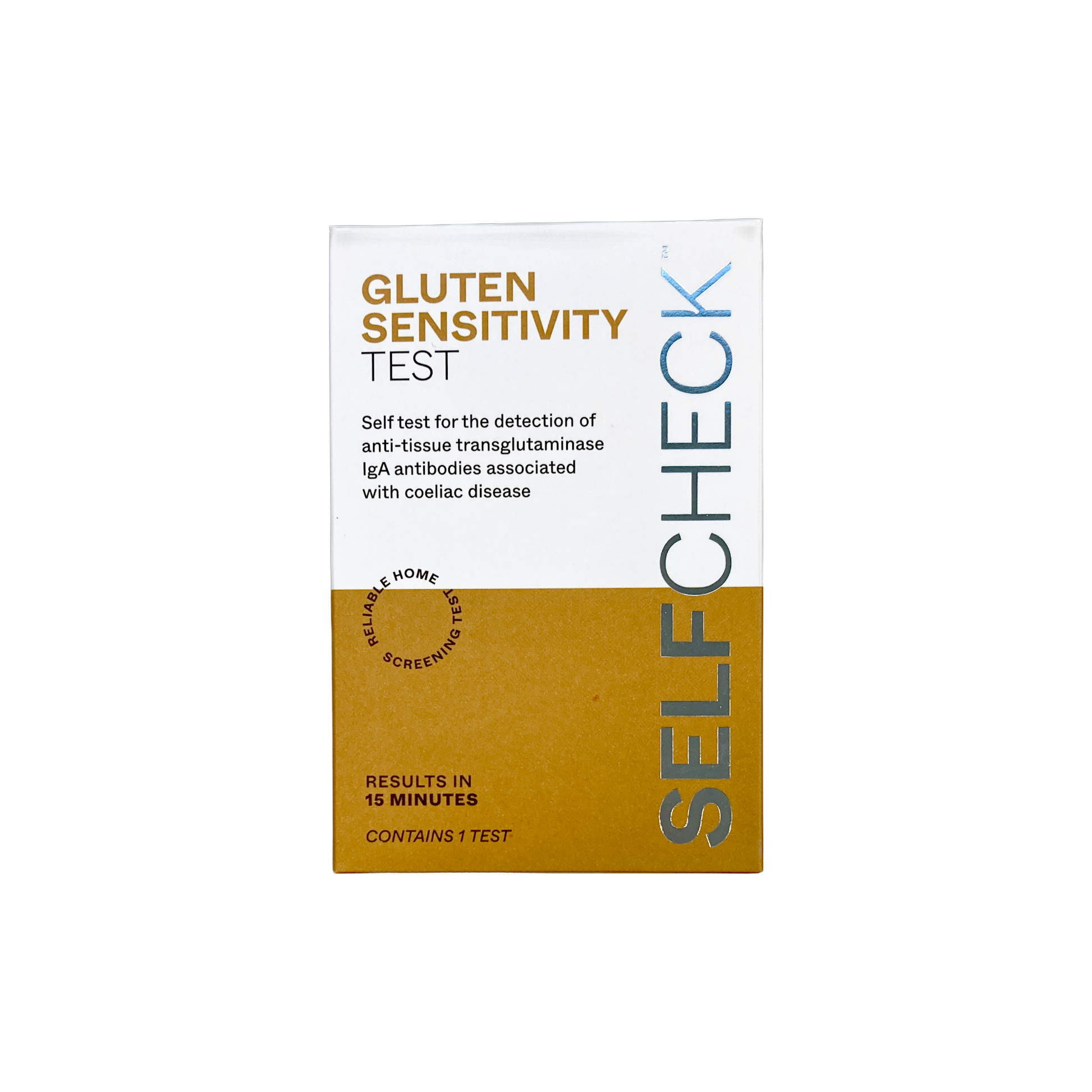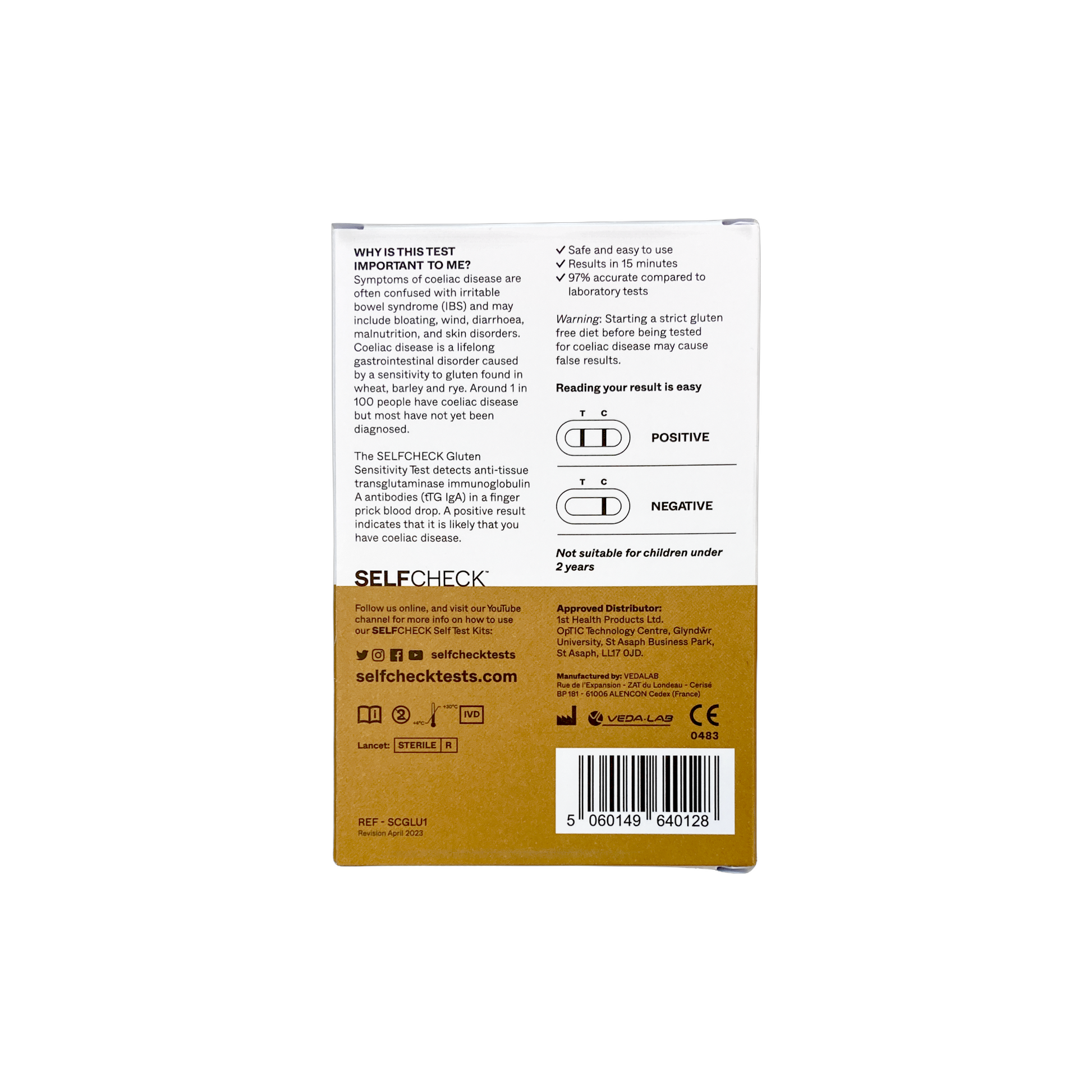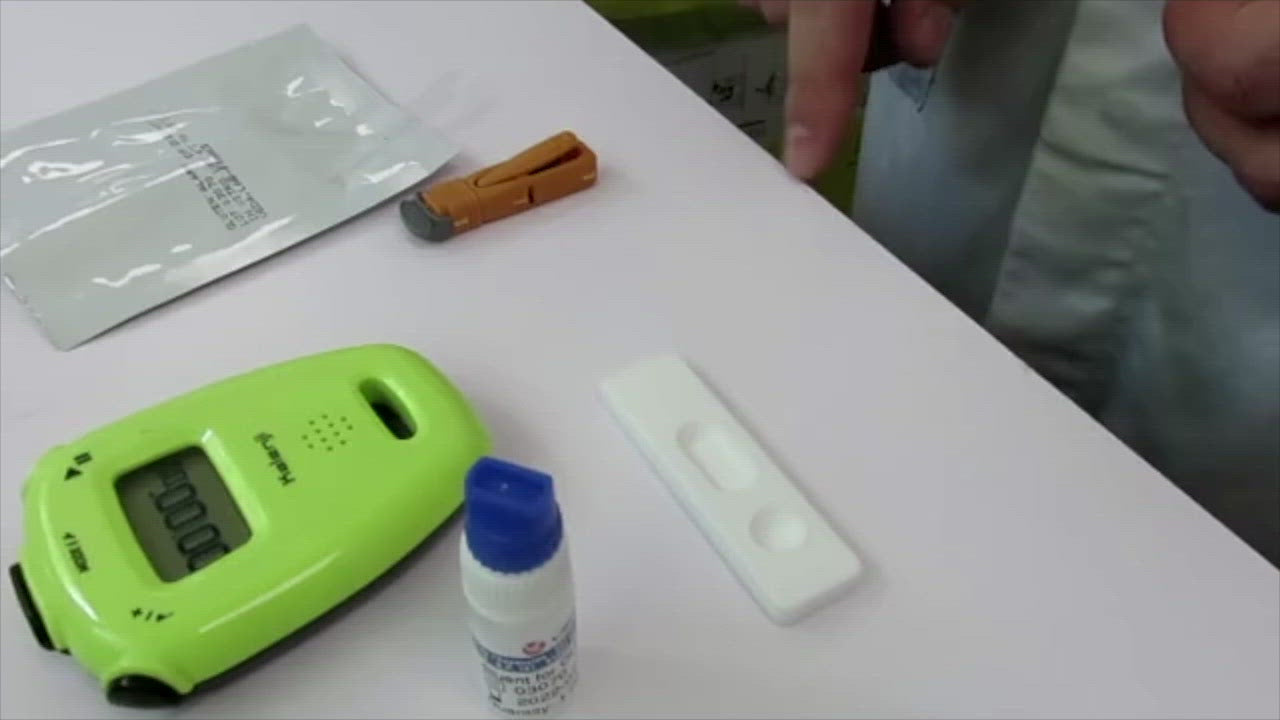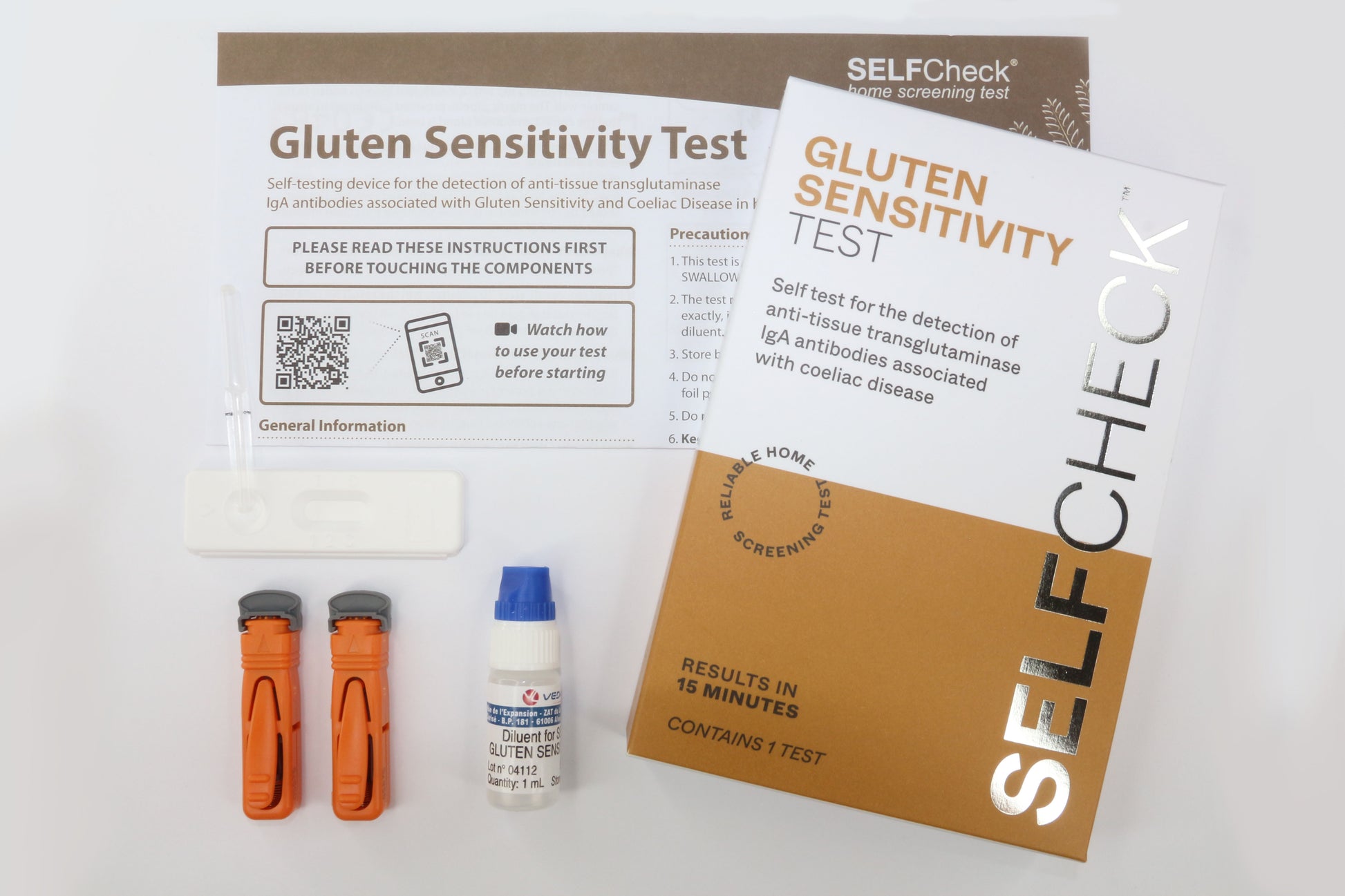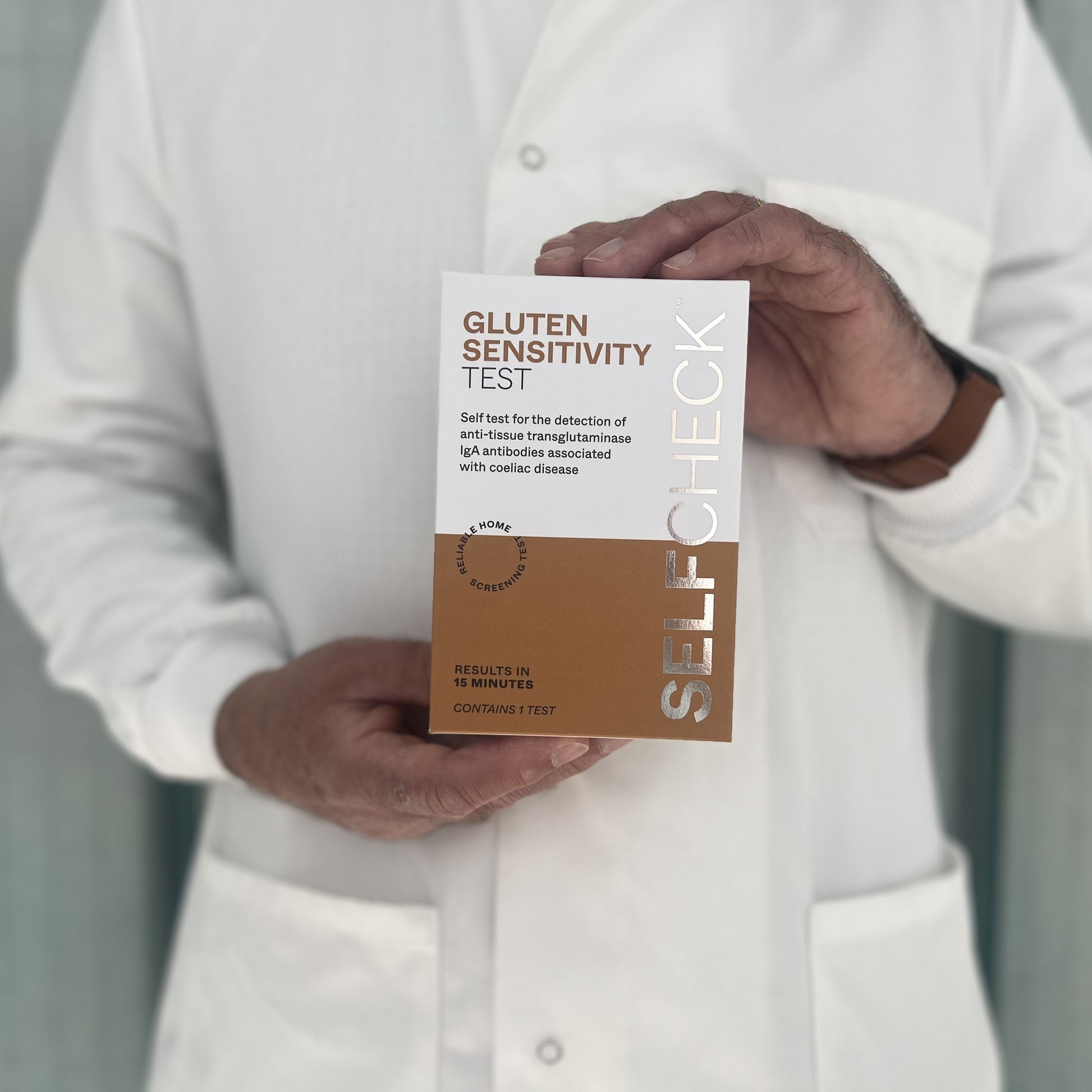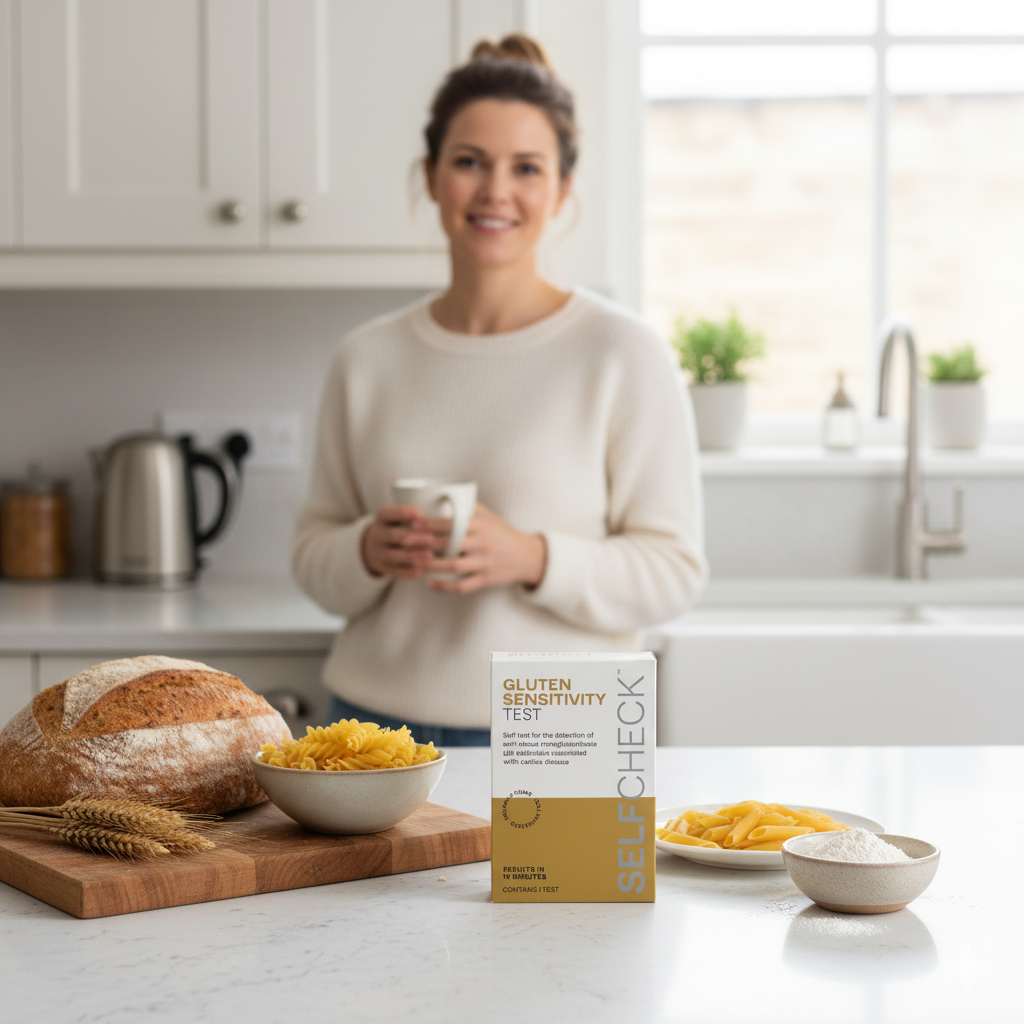SELFCHECK
SELFCHECK Gluten Sensitivity Test
SELFCHECK Gluten Sensitivity Test
Free UK delivery on orders over £30
Free UK delivery on orders over £30
Order before 2pm Monday to Friday for same day dispatch (except holidays). All orders dispatched in plain packaging.*
Couldn't load pickup availability
The SELFCHECK Gluten Sensitivity Test is a screening test that can help you find out whether your symptoms, similar to irritable bowel syndrome (IBS), could be due to coeliac (celiac) disease. Coeliac disease is relatively common, affecting around 1 in 100 people in the UK. Coeliac disease is not a wheat allergy, or gluten intolerance, but is a type of gluten sensitivity that is frequently misdiagnosed as irritable bowel syndrome (IBS). If you have symptoms, or are anxious about your health, always speak with your doctor.
- Test at home
- Results in 15 minutes
- Detects tTG IgA antibodies - specific for coeliac disease
- 97% agreement with laboratory tests
- Instructions in plain English
- Finger-prick blood test
- Assembled in the UK
- Professional customer care
This test is not suitable for children less than 6 years old.
Some self-testing kits check for both IgG and IgA antibodies. Tests for IgA antibodies, like the SELFCHECK test, are more specific with fewer false positive results. Although IgA tTG tests are regarded as the gold standard for coeliac disease screening, around 1 in 500 people have an IgA deficiency which could give a false negative result.(1)
The self-test kit is easy to use at home, requiring only a small finger-prick blood sample to perform the test and gives a reliable result in 15 minutes. The test is CE certified and registered with MHRA.
Symptoms of coeliac disease
Symptoms can vary depending on the severity of the condition, and may include digestive issues like stomach pain, bloating, constipation or diarrhoea, fatigue, joint and muscle pain, mouth sores, headaches, depression and anxiety.
If you have untreated coeliac disease, you're also more likely to develop lactose intolerance, where your body lacks the enzyme needed to digest the natural sugar (lactose) found in dairy products. Lactose intolerance can also cause symptoms such as bloating, diarrhoea and abdominal discomfort.
How the test works
Just like laboratory tests, the SELFCHECK test detects an established biomarker for coeliac disease called tissue transglutaminase IgA antibodies (tTG IgA), from a finger-prick drop of blood.
Most people find the test easy to use, and contains everything you need to safely test at home, and get a reliable result in minutes. You can contact our professional, health check experts if you need help to use your test.
Accuracy of the test
- >97% agreement with laboratory tests for tTG IgA
- results in 15 minutes
Easy to read result
- one line in the test cassette window means a negative result and no tTG IgA antibodies have been detected, it is unlikely that you could have coeliac disease. People with IgA antibody deficiency may also give a negative result
- two lines in the test cassette window indicates a positive result and that a high level of tTG IgA antibodies are present, and it is likely that you could have coeliac disease
Whatever your result, you must speak with your doctor if you have symptoms that are of concern, or you are anxious about your health.
Treatment for coeliac disease
Once your diagnosis of coeliac disease has been confirmed by your doctor, the treatment is a strict gluten free diet. This means avoiding all foods and drinks made from, or containing wheat, barley or rye. Do not start a gluten free diet until you have spoken with your doctor as avoiding gluten can cause false negative results in both blood tests and intestinal biopsy.
Contains 1 test.
Information for health care professionals
Principle, performance data, and regulatory information on the SELFCHECK Gluten Sensitivity (Coeliac Disease) Test for health care professionals.
IMPORTANT: Always speak with your doctor if you have symptoms that concern you. You must be on a normal gluten containing diet to get a reliable result. Not suitable for children under 6 years old.
Order direct from SELFCHECK
- expert customer services
- SELFCHECK test are assembled at our UK labs
- reliable results at home in minutes
- clinically proven, CE certified and registered with MHRA
- same components used in hospital tests
- supplier of laboratory diagnostics to NHS and research institutions
(1) Tissue Transglutaminase Antibodies (TTG) NHS South Tees Hospitals, NHS Foundation Trust
Revised 10th February 2026
Important - before you decide to test
Important - before you decide to test
Should you buy a self-testing kit or speak to your doctor? Find out more
What SELFCHECK users say
What SELFCHECK users say
We invited SELFCHECK customers to tell us about their experience with their SELFCHECK test.
- 4/5 overall rating
- 9/10 easy to read instructions
- 4/5 thought that using the test was worthwhile
"All appeared good and instructions easy to follow"
"Everything was easy to follow"
"Very satisfied with your service"
"Simple enough, just had to check the instructions a couple of times"
The survey was completed in the Summer of 2024 of 118 random respondents who purchased one of our SELFCHECK tests. All customers are provided with contact information for our customer care team with their test, if they need any help to use their SELFCHECK test, or help to interpret their results.
For further information on how the scores were calculated please contact SELFCHECK.
Information for doctors
Information for doctors
SELFCHECK has been a leading British brand of health checks for over 10 years.
At SELFCHECK, we're working hard to make self-testing better for your patients. All our medical tests are assembled at our quality assured (ISO13485) medical device facility in the UK, and registered with MHRA according to UK medical device regulations IVDD/IVDR.
We are working closely with the NHS and academia to develop new diagnostics at our own UK R&D labs, particularly in the areas of sepsis, and the monitoring of chronic diseases.
Our professional customer care team provide help for your patients, so they can fully understand how our tests work, and how they should be used.
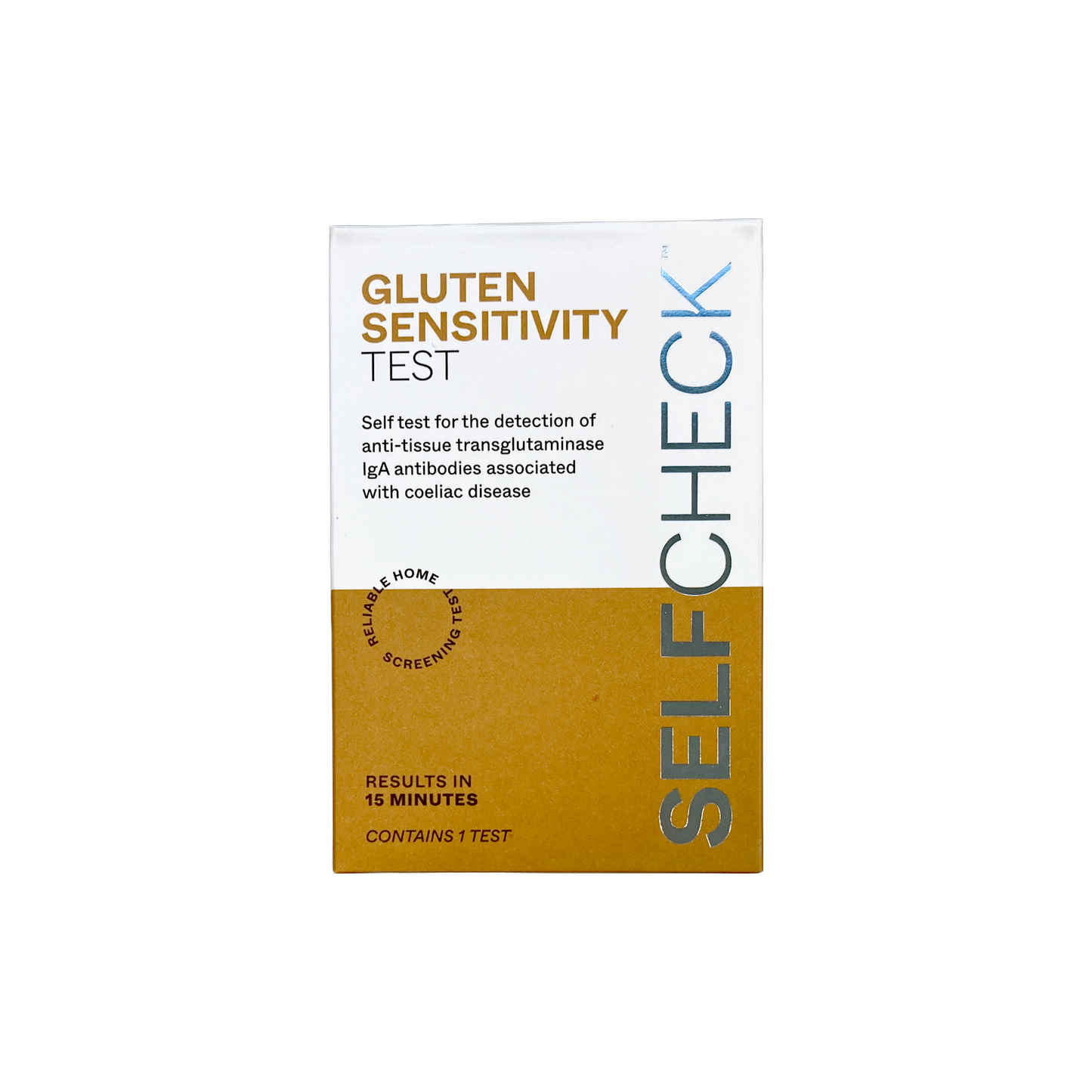
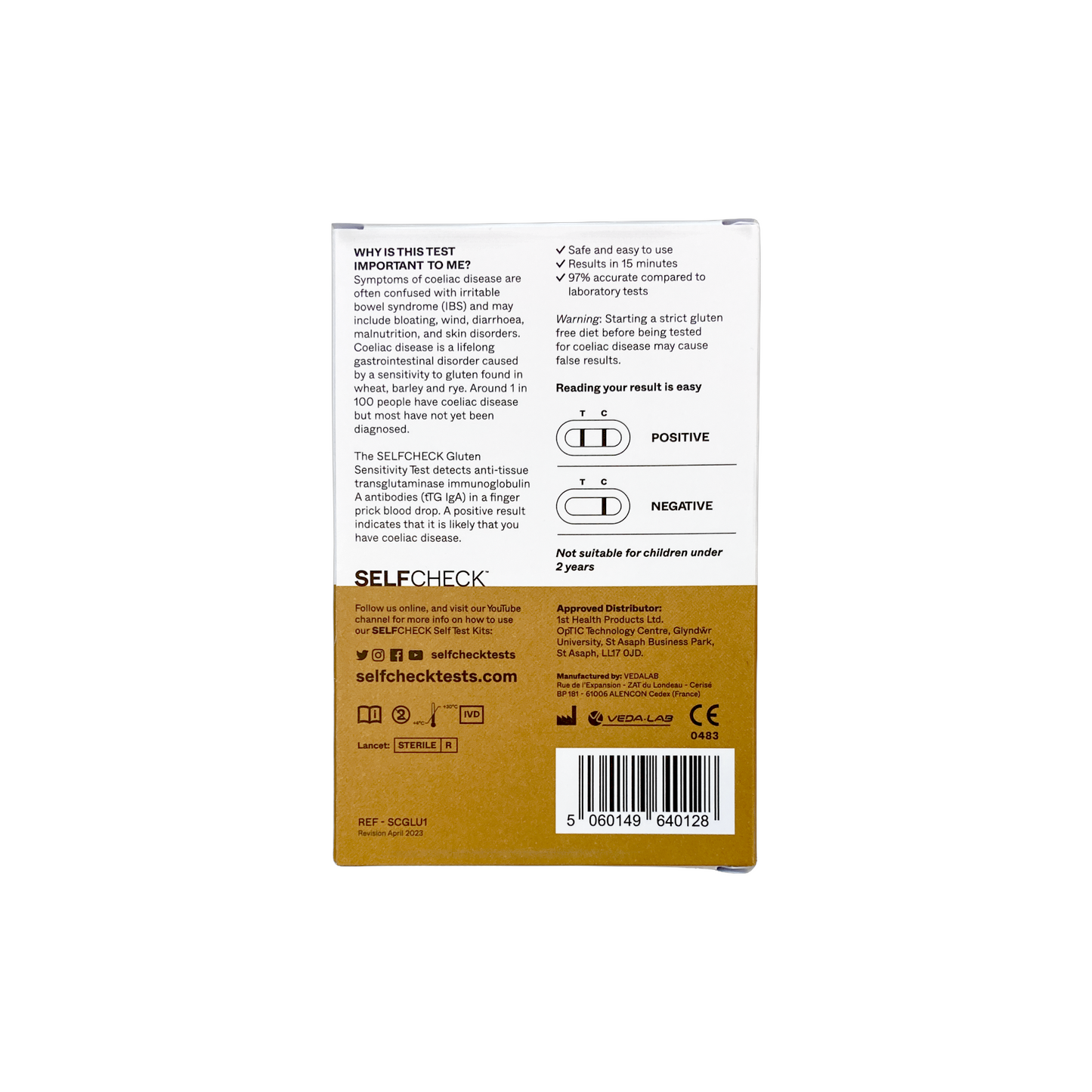
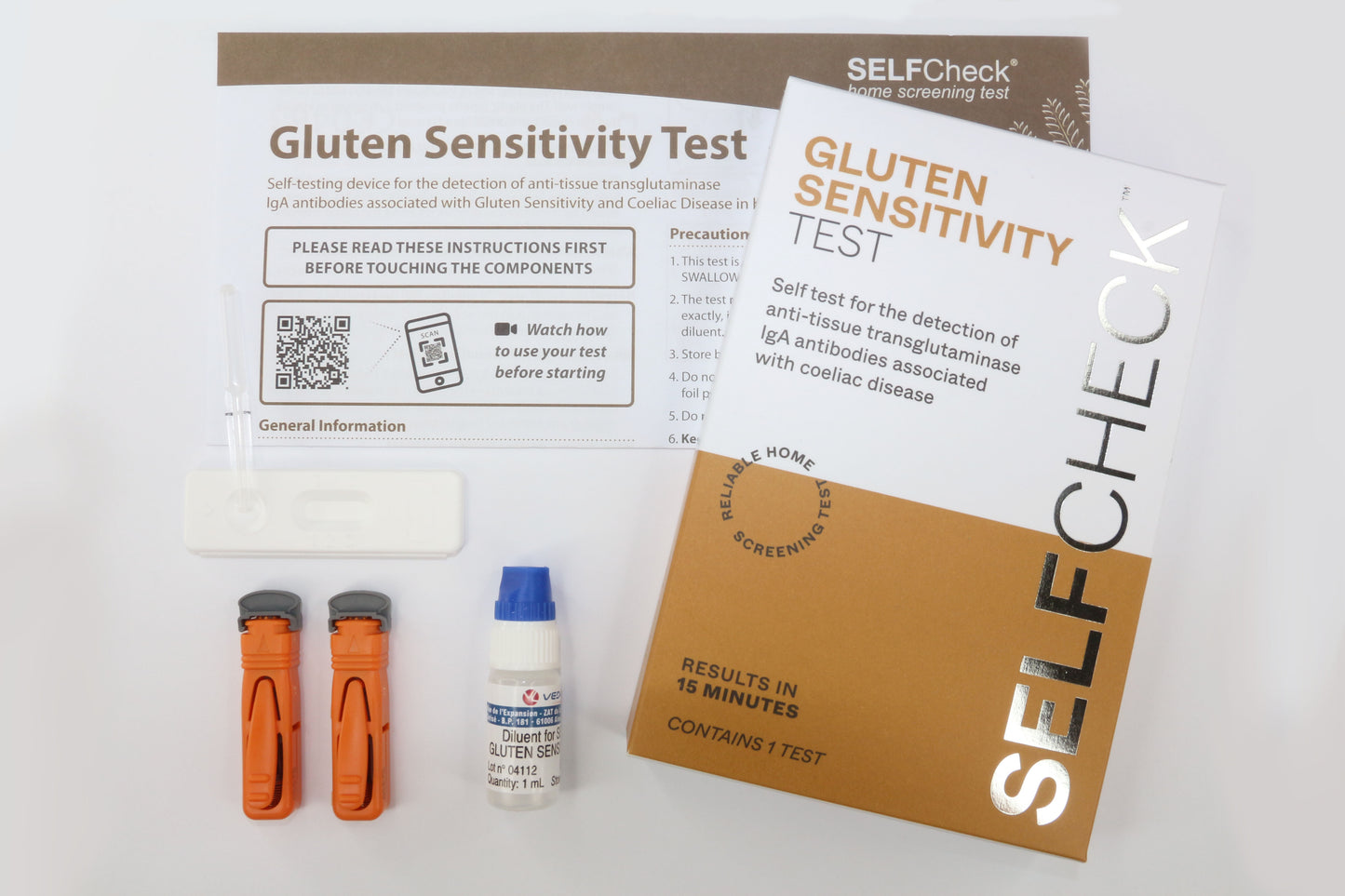
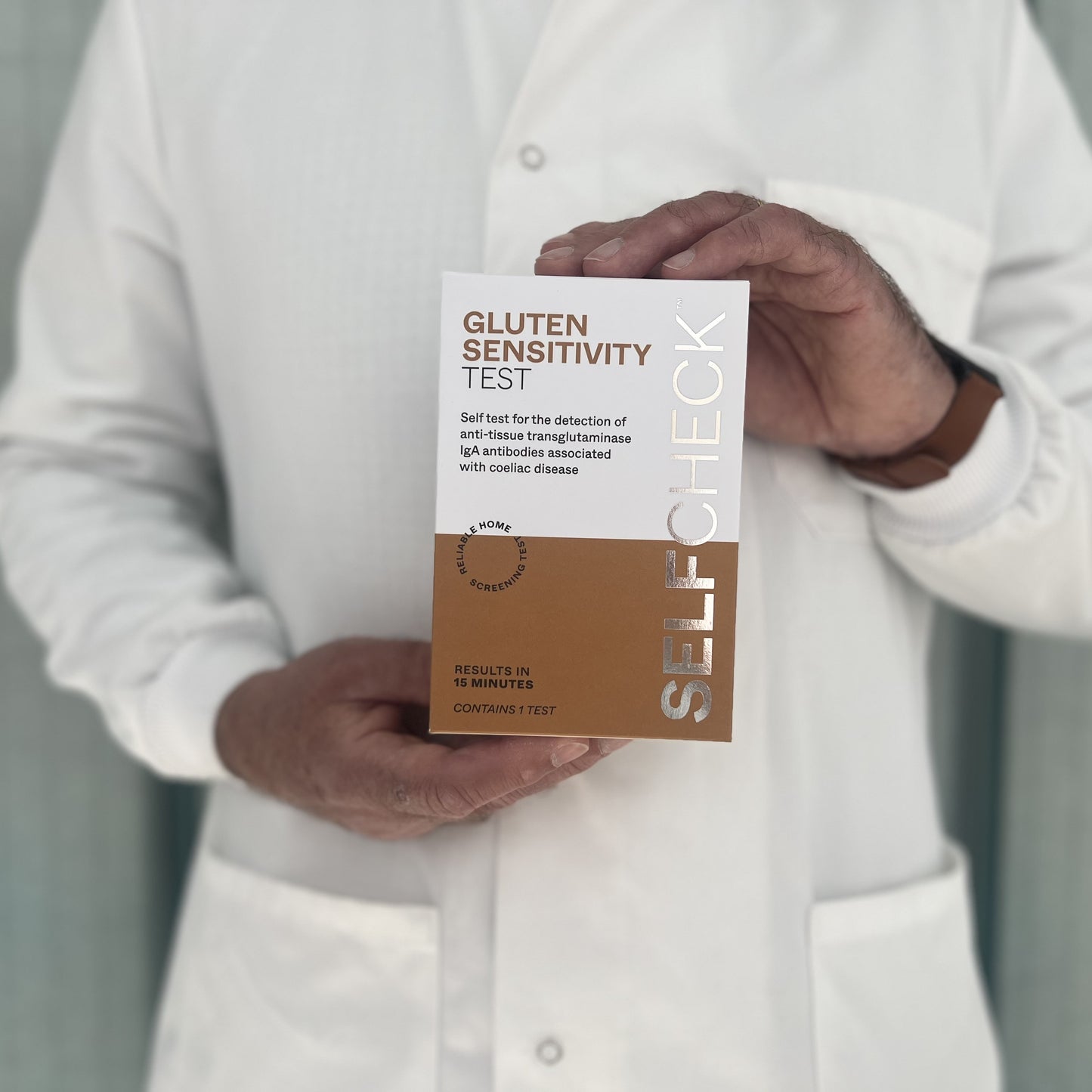
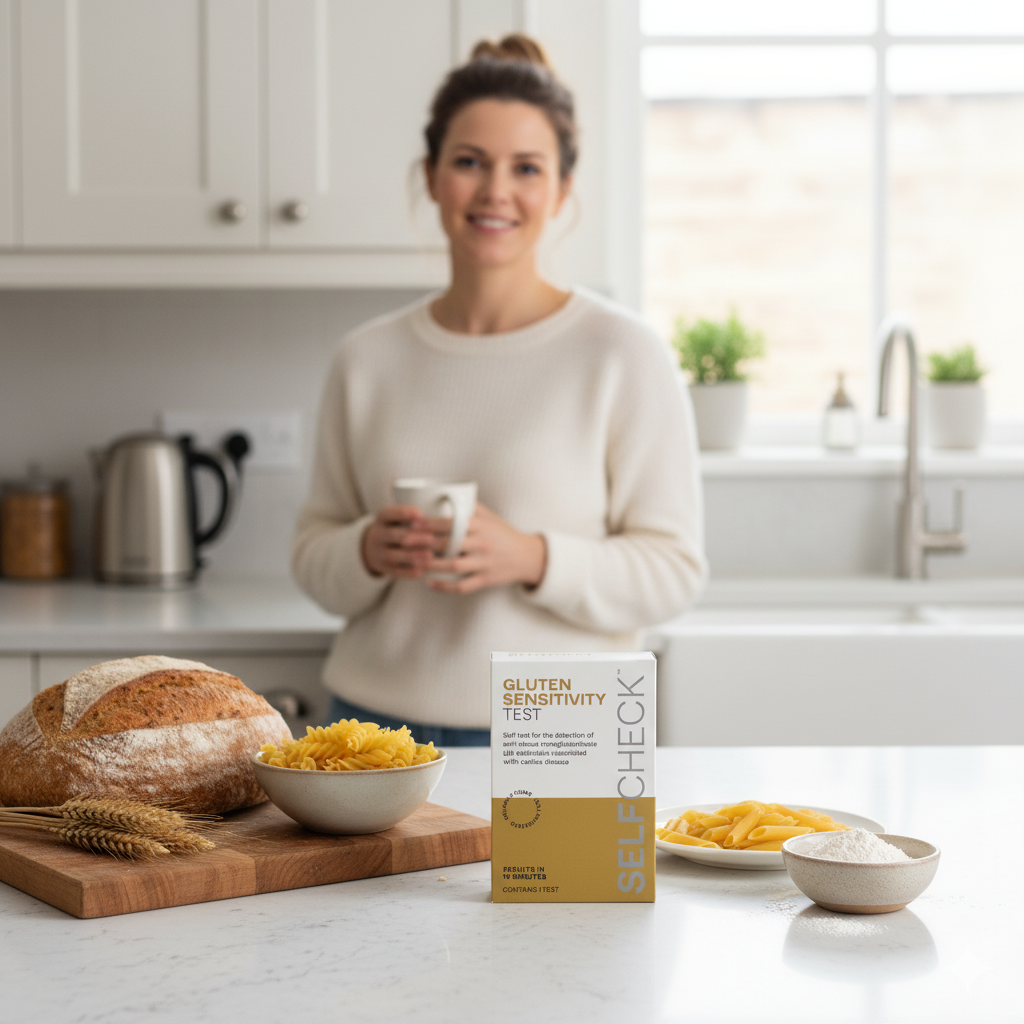
Important to know
All SELFCHECK branded tests are assembled by us in the UK at our ISO13485 certified manufacturing and R&D facility. Our medical tests are also CE certified according to UK and EU regulations, and registered with MHRA as self-testing devices.
Our tests are based on the same principles used by hospital labs, and provide reliable, meaningful results, but self-testing is not meant to replace established NHS healthcare pathways. Always consider what a positive or negative result will mean to you before testing, and be aware of the limitations of the test you are using.
If you have symptoms that concern you, or are anxious about your health, always speak with your pharmacist or doctor.

